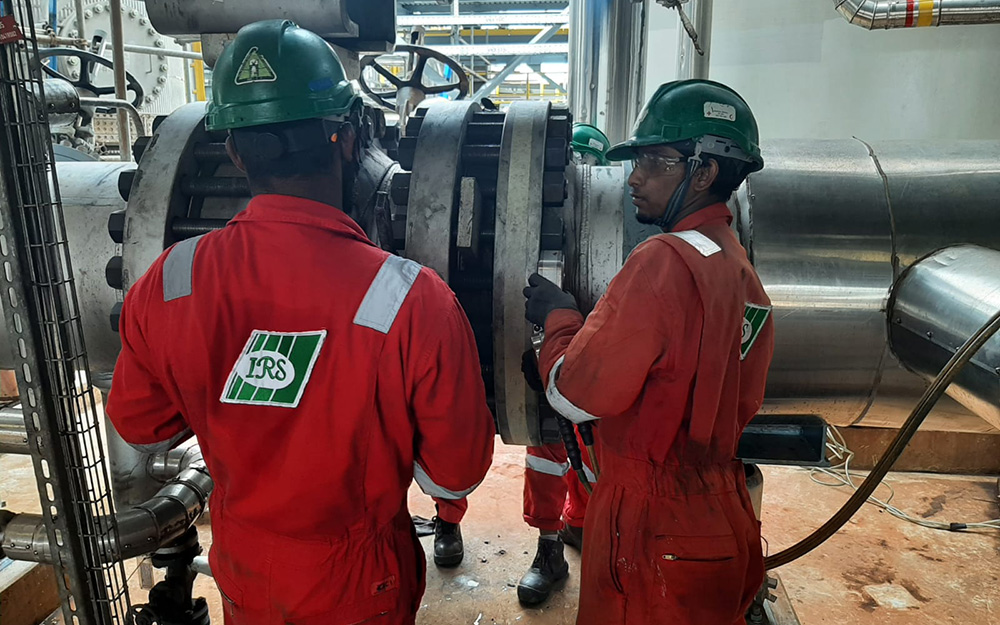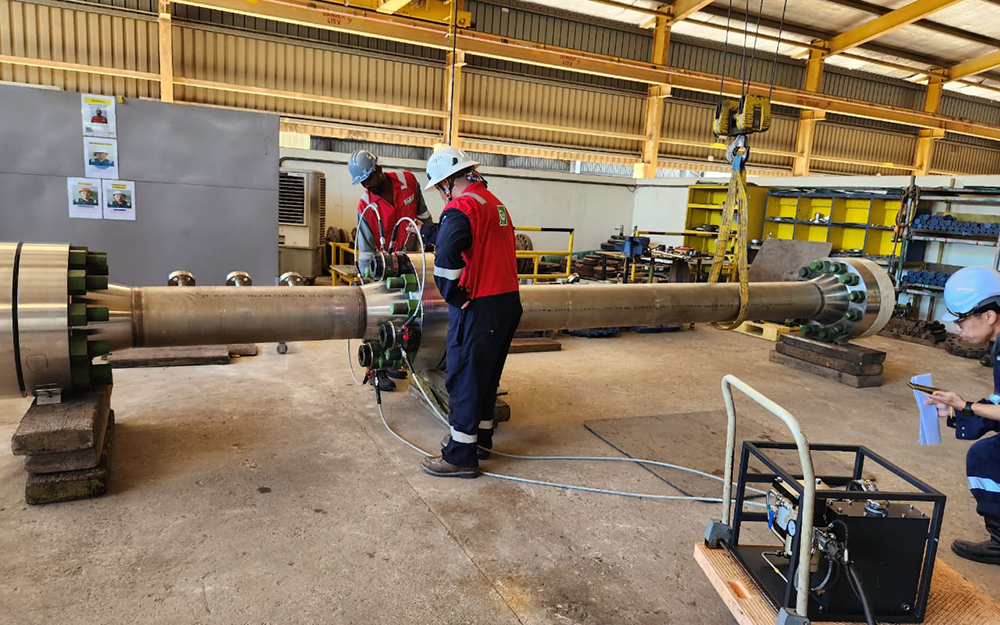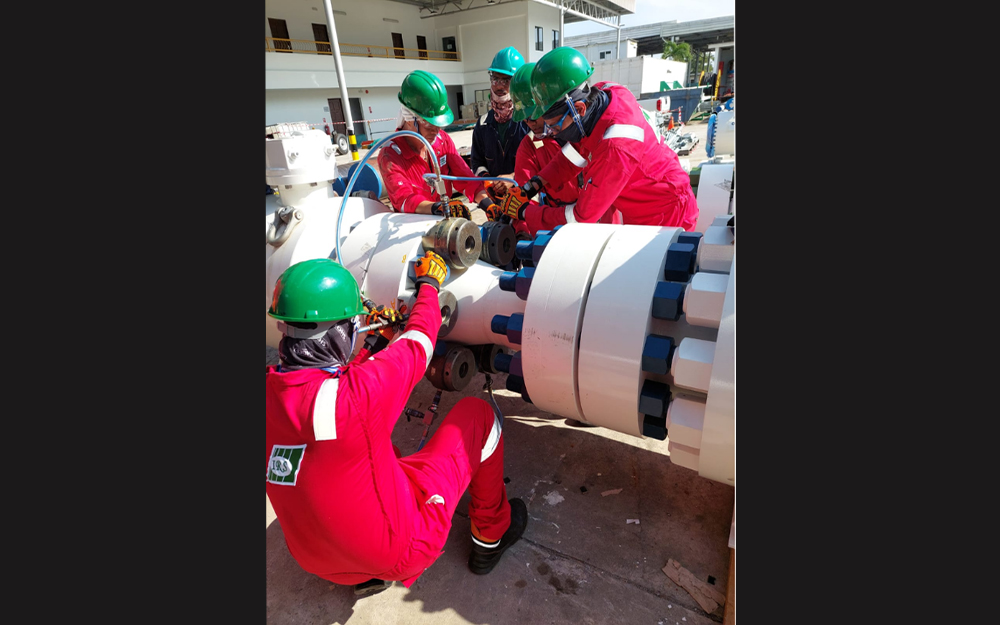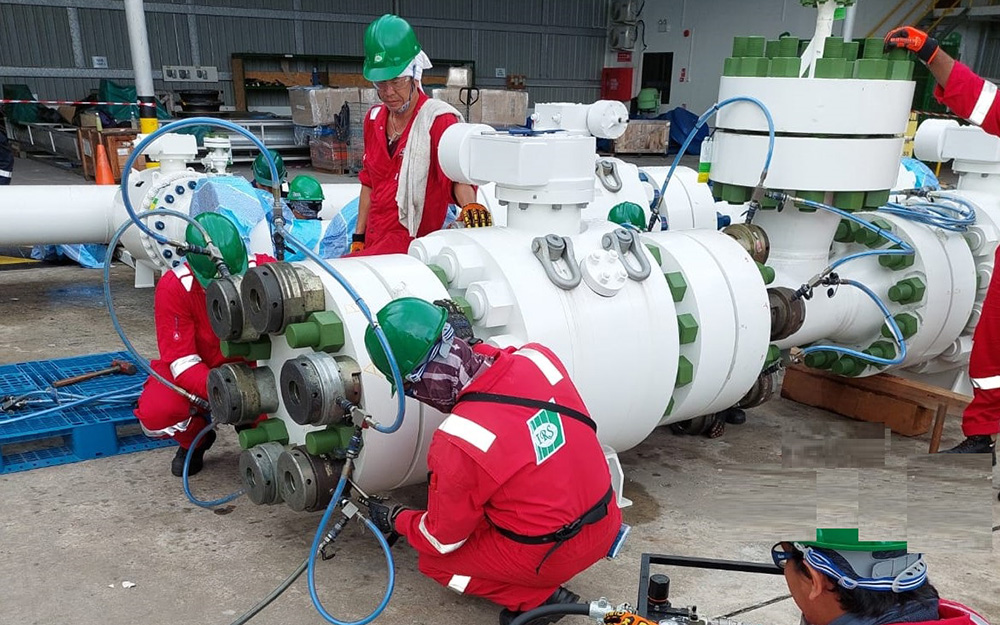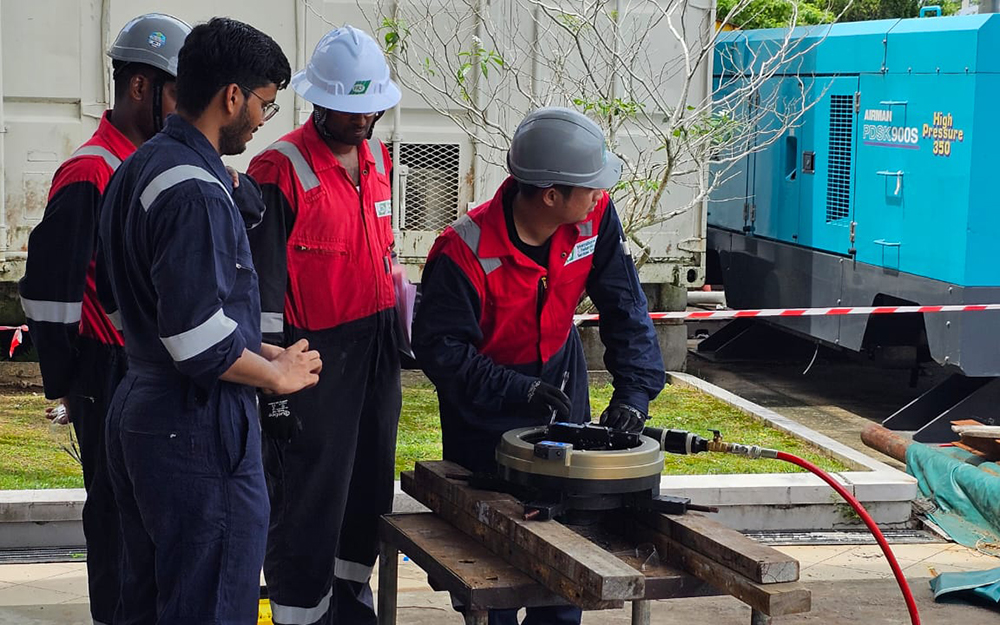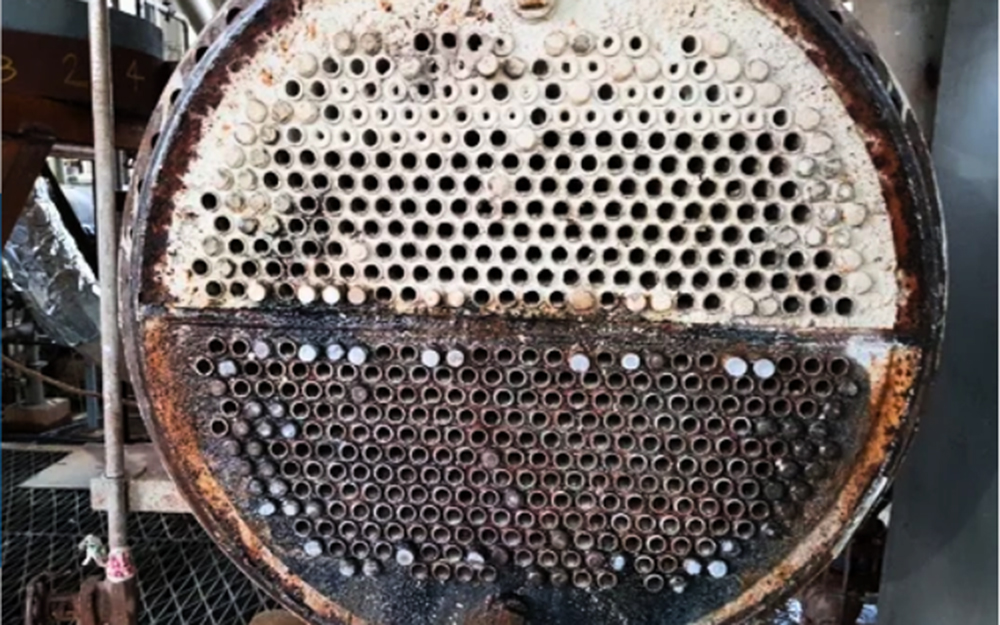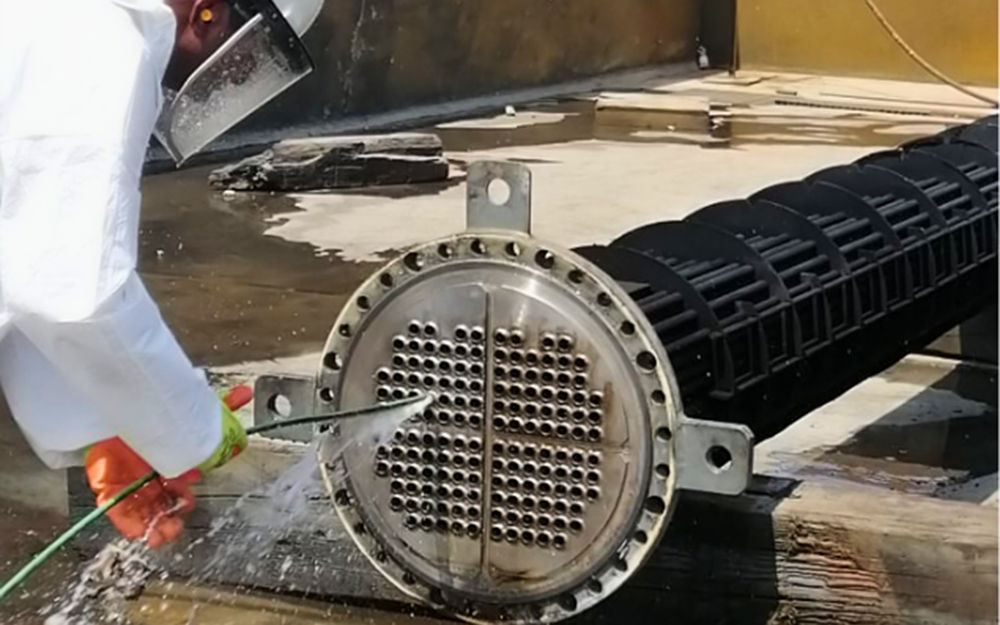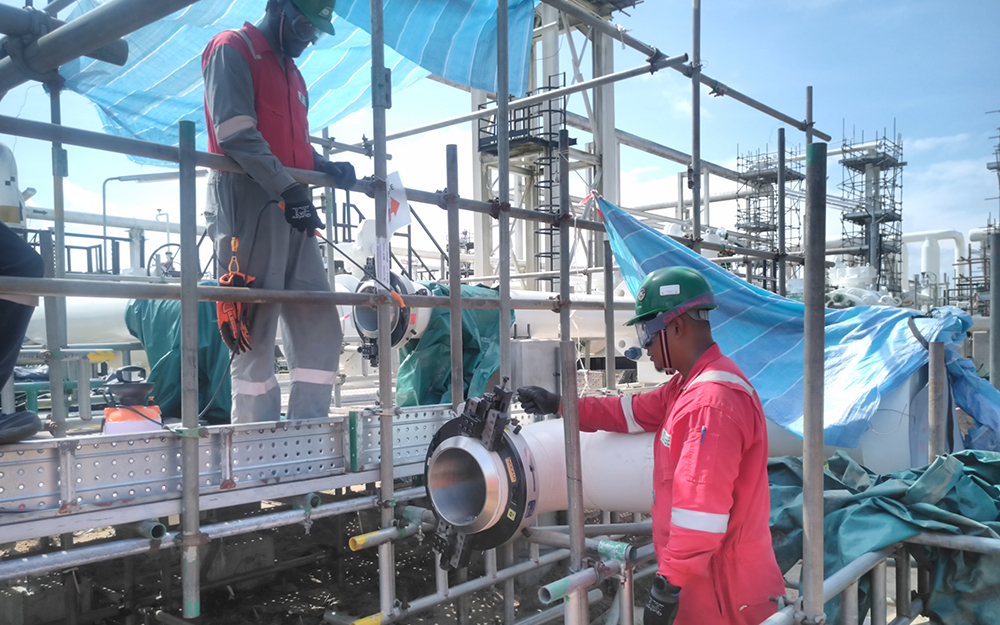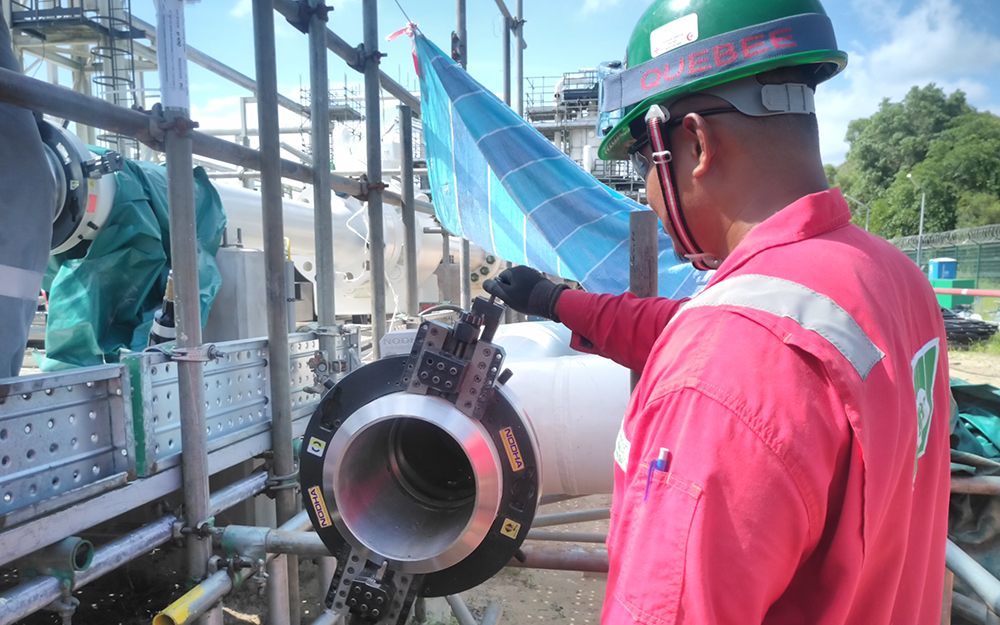
Mechanical Services
Flange Management Services
Flange Management Services are crucial for leak prevention in bolted flange assemblies, ensuring proper assembly and tightening during turnarounds, shutdowns, maintenance, construction, or other interventions. Flanges are essential for securely connecting pipes and valves, preventing leaks that could lead to environmental contamination, health risks, and production delays. We offer specialized flange management services, including bolt torquing, bolt tensioning, on-site precision machining, and thorough QA/QC verification, using fully certified personnel and advanced equipment to provide a cost-effective, flexible, and reliable solution for integrity applications.
Bolt Torquing
Flange Bolt Torquing refers to the process of tightening bolts that are used to secure flanges together in piping systems or other mechanical assemblies. In Flange Bolt Torquing, the bolts are tightened to a specific torque value using the mechanical or hydraulic torque wrench. The torque value is typically determined based on factors such as the size and material of the bolts, industry standards or specifications.
Proper torquing of flange bolts is crucial to ensure a leak-tight seal between the flanges, preventing any fluid or gas from escaping the system. Under-tightening can lead to leaks, while over-tightening can result in damage to the flanges or bolts. Therefore, following the recommended torquing procedure is essential for the reliable and safe operation of piping systems and other assemblies utilizing flanges.
Bolt Tensioning
Bolt Tensioning is a method used to achieve and control the tension or preload in a bolted joint by applying a specific force to stretch the bolt. This process ensures that the joint is securely fastened and can handle operational stresses. Specialized equipment, such as hydraulic or pneumatic tensioners, applies precise force to stretch the bolt to the desired length, generating the necessary tension. Once hydraulic pressure is released, the Bolt Tension is retained due to the tightened nut preventing the bolt from returning to its original length.
Hydraulic stud bolt tensioners can be connected in multiples to ensure uniform tension across all bolts, which is crucial for maintaining consistent, leak-free connections, especially with sealing gaskets. Bolt Tensioning is also useful in cases with limited access to the bolt head or when dealing with large, high-strength bolts.
Flange Face Machining
Flange Facing on-site service involves machining or refinishing the mating surfaces of flanges directly at industrial facilities such as refineries, chemical plants, and power plants. Flanges, used to connect pipes and equipment, can suffer damage from high temperatures, pressure, or corrosive substances, leading to leaks or sealing issues.
On-site flange facing offers advantages over off-site solutions, including reduced downtime, cost savings, and the ability to address problems without dismantling large components or shutting down systems. This service is efficient, cost-effective, and adaptable to various environments, ensuring the integrity and reliability of piping systems in industries where leakage can pose significant safety and environmental risks.
Tube Cleaning Services
Our Heat Exchanger Tube Cleaning Services are designed to restore the efficiency and performance of your heat exchangers by removing scale, deposits, and contaminants that can accumulate over time. We begin with a detailed inspection to assess the condition of the heat exchanger tubes and determine the most effective cleaning approach. Our cleaning process typically involves high-pressure water jetting, which uses powerful jets to dislodge and flush out stubborn deposits. For more delicate cleaning, we use nylon brushes to scrub the interior surfaces of the tubes, ensuring thorough cleaning without damaging the equipment.
After cleaning, the system is thoroughly flushed and rinsed to remove any remaining debris and cleaning agents. We then conduct a final inspection to ensure the heat exchanger is in optimal condition and provide maintenance recommendations to help prevent future issues. Our comprehensive approach not only improves efficiency and extends the lifespan of your heat exchangers but also minimizes downtime and operational disruptions. Our team of skilled technicians is equipped with the latest tools and techniques to deliver efficient and effective cleaning services tailored to your specific needs.
Cold Cutting
Cold Cutting machining is a process that cuts materials without generating heat, sparks, or flames, making it ideal for hazardous environments such as oil and gas, petrochemical, and offshore industries. IRS utilizes pneumatic cutting tools, which are powered by pneumatic systems and are suitable for cutting pipes, steel beams, and structural components, including underwater operations. The advantages of cold cutting machining include enhanced safety by eliminating heat and sparks, thereby reducing fire and explosion risks. It offers precision, achieving clean, accurate cuts without thermal distortion. The process is versatile, capable of cutting a wide range of materials, and environmentally friendly, as it reduces dust, fumes, and pollutants compared to traditional cutting methods.
Applications of Cold Cutting machining span across various sectors. In the oil and gas industry, it is used for pipeline cutting, rig decommissioning, and maintenance in explosive atmospheres. In construction and demolition, it is effective for cutting reinforced concrete and steel beams. Additionally, it is valuable for maintenance and repair, facilitating on-site machining for plant maintenance, shipbuilding, and heavy machinery repair. Cold cutting machining is crucial for safe and precise cutting operations in challenging environments, ensuring efficiency and safety while maintaining high standards of environmental protection.

